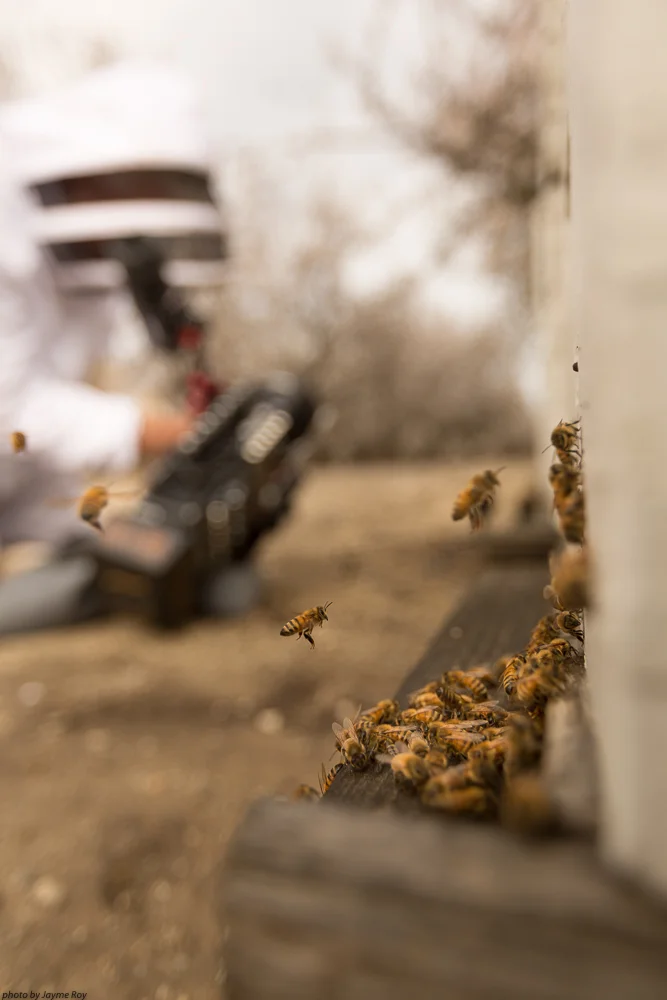“The Pollinators”
I love documentary films because I have an insatiable curiosity about the world.
As a kid growing up in rural New England, I spent much of my youth outside joyfully exploring the natural world around me. I was a kid who wanted to know what creature lived under a rock, what bird made a particular nest and which critter dug a hole in the ground. I lifted tons rocks, climbed up and fell out of many a tree and poked a lot of sticks in the ground to see what might come out. Sometimes I got stung and bitten, but that is the nature of discovery and more often I found interesting things that kept me at it. I continued to bring snakes and snapping turtles to school, grew vegetables and flowers in our gardens and laid on my back watching the clouds and wondered how they formed.
I started keeping bees as a direct result of that insatiable interest in the natural world.
I’d always had a real interest in bees, so I read a few books about beekeeping, bought a beekeeping kit, a package of bees and I was hooked and have been keeping honey bees for the past 28 years in the Hudson Valley of New York. I’ve made plenty of mistakes, picked up mentors along the way and continue to learn something to this day. One wonderful thing about keeping bees is when we think we start to have a handle on it, the bees or nature will throw a curve that keep us guessing and humble.
For me, honey bees are endlessly fascinating and I get lost in casually studying their behavior and the wonderfully complex society they inhabit, all working in various and specific capacities toward the common good and dependent upon their fellow bees.
A true superorganism.
My inquisitive nature also led me to make a career in documentaries where I have had the privilege of parachuting into peoples’s world to explore and report on those worlds. “The Pollinators” project is based on that premise, but it is also much more; a true labor of love and the confluence of several of my own passions: Beekeeping, food, gardening and filmmaking.
Over the years, I periodically noticed trucks loaded with pallets of bee hives on the highways. My curiosity got the better of me and I became intrigued by this special group of beekeepers that move bees around the country pollinating agricultural crops.
I started asking the questions of why they do this; is it the increasing size and corporate nature of agriculture, are wild and native bees that scarce and so on.
I wondered what these migratory beekeepers could tell me about that.
Several months later, commercial migratory beekeeper Dave Hackenberg met me in a supermarket parking lot off Route 495 in Massachusetts on his way back from placing bees in blueberry fields. Dave kindly stopped to meet with me and talk about what I wanted to do with his project. He listened carefully to my concept, asked me a few questions and quickly said he wanted to take part in the film. Dave is decisive, direct and tells it like it is, so I knew immediately that I had found a fantastic beekeeper to help tell this story.
That was the start of this journey.


